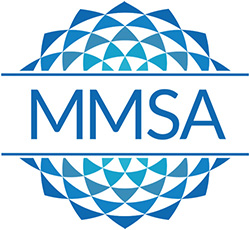Think about that dynamic science teacher you know the one the one that artfully engaged you in content and masterfully managed activities. Teachers from MMSA’s SCITEC and TIES projects came together as Sebasco Harbor Resort June 19-21 to learn effective strategies for interacting with students in increasingly complex STEM classrooms from the accomplished and highly engaging Dr. Kendall Zoller. Also present were a handful of middle and high school teachers who have been through Maine’s Governor’s Academy. These teacher leaders served as learning partners at this event, sharing their experiences for leading curricular and instructional efforts itheir schools and districts while learning strategies for bringing engineering into the science classroom. SCITEC and TIES participants left armed with practical skills for working with students in STEM settings as well as new skills for leading professional conversations around transitions to STEM education across K-12.
Educators who participated in a yearlong mathematics and science partnership also recently came together to showcase their professional development outcomes and highlight student project work with Maine Education Commissioner Stephen Bowen, key partners with the Maine Department of Education, and the University of Maine Farmington. Teams participated in two professional development projects offered through MMSA and funded by Maine Department of Education’s Math and Science Partnership State Grants: Midcoast Maine Mentoring Mathematics and Career Technical Education Teams (M4CTE) and, Learn, Experience, Apply in a Regional Network (LEARN) Mathematics.
Teams met on a monthly basis throughout the 2011-2012 school year with MMSA staff to improve content knowledge, content-specific pedagogical knowledge and skills, and instructional practices in the areas of measurement and approximation, data analysis, and statistics and probability.
Projects allowed students the opportunity to carry out investigations, collect data, and/or perform research to demonstrate achievement as they completed individual or group projects such as The Wind Blade Model, Nutrition, Window Boxes, and much more.
Teacher-developed lessons are available in a monograph collection disseminated by MMSA.


